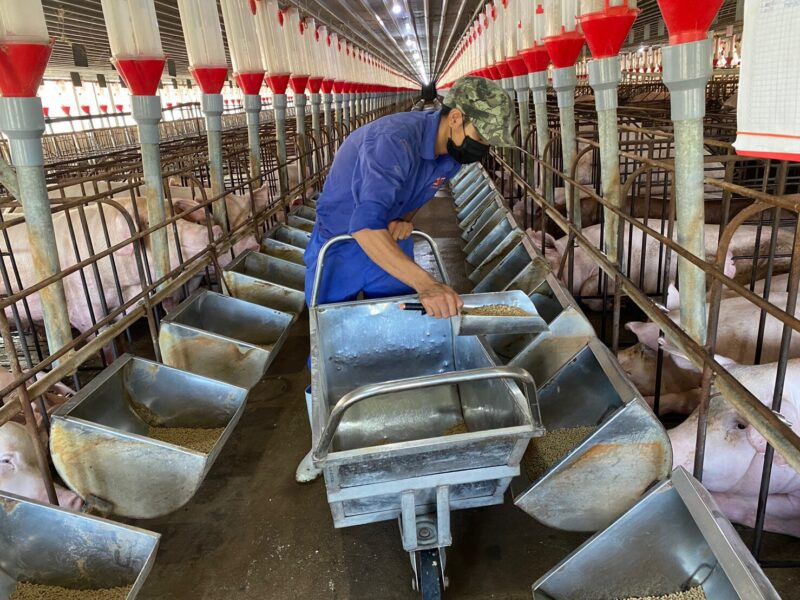
The Vietnam Livestock Association has sent a document to the Ministry of Natural Resources and Environment (MONRE), offering suggestions that amend Decree 06 on reducing greenhouse gas emissions and protecting the ozone layer.
The association, while acknowledging the commitments at the global climate change conferences, has expressed concern that this will affect the livestock industry.
Compared with industrialized countries, the space for greenhouse gas emission reductions in Vietnam remains large and many business fields can implement the strategy to fulfill its commitments on emission reductions, including in mining, steel manufacturing, construction, transport, afforestation and rice farming.
These business fields have great potential and can expect high profits, and they also can have support from the state (such as projects on afforestation and 1-million-hectare high-quality low-carbon rice growing area development in the Mekong Delta).
Meanwhile, livestock farming in Vietnam is facing difficulties locally, and with livestock farming in developed countries. The association argues that now is not the right time to request livestock facilities to take stock of greenhouse gas emissions. At this moment, the husbandry sector needs state support because it is facing challenges and risks during the global integration process.
The livestock association has warned that many problems may arise if emission stocktaking is required for livestock facilities.
First, it will cause production costs to increase, thus leading to rises in product prices, which are already higher than those in developed countries. It is estimated that livestock facilities will have to spend VND100-150 million for stocktaking each year.
Second, the number of livestock facilities is very high. Meanwhile, except for some milk cow farms and pig breeder farms run by companies with good technical and management staff which apply the procedures to reduce greenhouse gas emissions, the other facilities cannot satisfy the requirement.
TH Group is an example. In the first two of four years of implementing inventory, the company found it difficult to take stock of greenhouse gas emissions at its farms, despite the big investment and direct guidance of foreign experts.
There are very few service providers and experts who have sufficient knowledge and experience to offer advice on the stocktaking and greenhouse gas emission control in the husbandry industry. Vietnam needs more time to produce experts.
Tam An